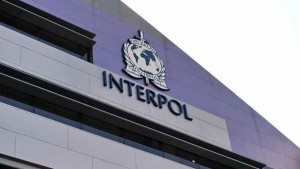Interpol has resoundingly rejected the Iranian government’s request for help in carrying out an arrest warrant for U.S. President Donald Trump, in a statement sent to CNBC late Monday.

“Under Article 3 of INTERPOL’s constitution ‘it is strictly forbidden for the Organization to undertake any intervention or activities of a political, military, religious or racial character’,” the Lyon-based international organization said in the emailed statement.
“Therefore, if or when any such requests were to be sent to the General Secretariat, in accordance with the provisions of our constitution and rules, INTERPOL would not consider requests of this nature.”
Iran on Monday issued an arrest warrant for Trump over the killing of its top commander, Gen. Qasem Soleimani, in January. Tehran Attorney General Ali Alghasi-Mehr was quoted in local press as naming Trump and 35 other people, who Iran has accused of involvement in Soleimani’s death, as facing “murder and terrorism charges.” He also reportedly asked Interpol to issue “red notices” for them — the highest-level notice the organization can issue on an individual to pursue their arrest.
Red notices enable local law enforcement authorities to arrest individuals on behalf of the requesting country, though they can’t force countries’ governments to arrest or extradite suspects. Still, they can cause diplomatic problems and restrict the travel and free movement of suspects.
U.S. Special Envoy for Iran, Brian Hook, called the Iranian announcement a “propaganda stunt that no-one takes seriously,” describing it as “political” and having “nothing to do with national security.”
Soleimani led Iran’s Quds Force, the foreign operations wing of the elite paramilitary Islamic Revolutionary Guard Corps. The Trump administration labeled him a terrorist, and Washington deemed him responsible for the deaths of hundreds of U.S. troops in Iraq — but in Iran, he was widely revered as a hero.
The 62-year-old Soleimani was killed in a drone strike directed by Trump in early January while in the Iraqi capital of Baghdad. News of his death sent regional tensions and oil prices soaring and triggered a retaliatory attack by Iran and its proxies on Iraqi bases housing U.S. troops.
Source:- Cnbc


Share your thoughts